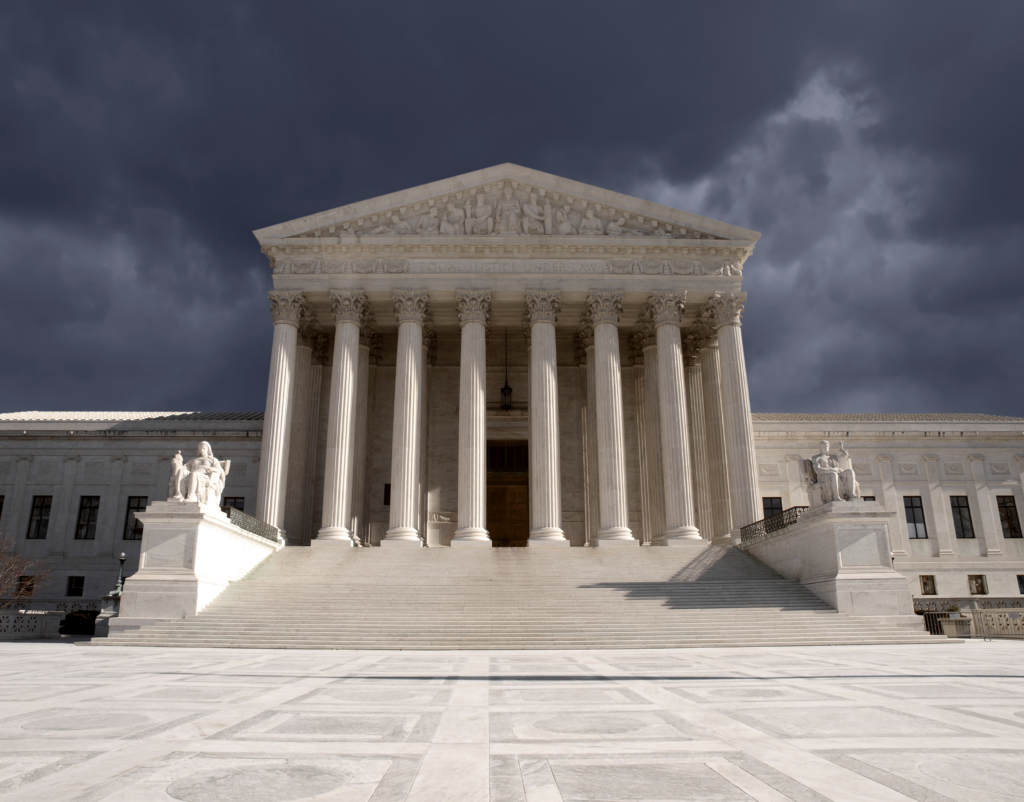SCOTUS Sets October Date to Rehear Case That Could Gut the VRA

The U.S. Supreme Court is set to hear oral argument in Callais v. Landry — the high-stakes Louisiana redistricting case that could upend the Voting Rights Act (VRA) — on October 15.
The upcoming hearing will be the second time the nation’s highest court hears oral argument in the pivotal voting rights case. On the last day of SCOTUS’ term in June, rather than handing down a ruling, the nation’s high court issued a surprise order to rehear the case. This fall, argument will focus on whether Louisiana’s creation of a second majority-minorty district under the VRA violates the U.S. constitution.
The case set to be heard by SCOTUS for a second time stems from a lawsuit over a new congressional map that Louisiana enacted in 2024, following a court order that required the state to draw a second majority-Black district to remedy Section 2 violations.
But almost immediately after Louisiana’s new map passed, a group identifying themselves as “non-African-American voters” sued to stop it, arguing the new majority-Black district created a racial gerrymander, in violation of the 14th and 15th Amendments. A federal district court agreed and struck down the new map in 2024, ordering the legislature to draw a new one.
In defending Louisiana’s new map, the state argued that race wasn’t the predominant factor for drawing new districts. The new map, the state said, was drawn to comply with the federal court order and to protect the seats held by House Speaker Mike Johnson (R-La.), and House Majority Leader Steve Scalise (R-La.).
In taking up this case, there was always a chance that a SCOTUS ruling could potentially upend Section 2 of the VRA, which essentially allows people to sue over any discriminatory voting law or map. SCOTUS’ punting a decision on Callais until next term signaled that the Court’s conservative majority may indeed be preparing to upend the VRA — especially considering Justice Clarence Thomas’ dissent.
In his dissent, Thomas wrote that the case highlights the “intractable conflict” between the court’s interpretation of Section 2 of the VRA and the Equal Protection Clause of the Fourteenth Amendment. He added that the Constitution is “supreme” over the VRA — indicating his support for gutting the provisions that protect minorities from racial gerrymandering — and possibly foreshadowing the position the court will take when it rehears the case October 15.
But the conservative-led Court made it particularly clear that it is zeroing in on the VRA when it ordered supplementary briefing, asking both parties whether a state’s creation of a “majority-miniority congressional district violates the Fourteenth or Fifteenth Amendments.”
“To me, this is it,” Luis Fuentes-Rohwer, a law professor at Indiana University Bloomington, recently told Democracy Docket. “I would bet my left arm that they will tell us that Section 2 is in violation of the Fifteenth Amendment.”